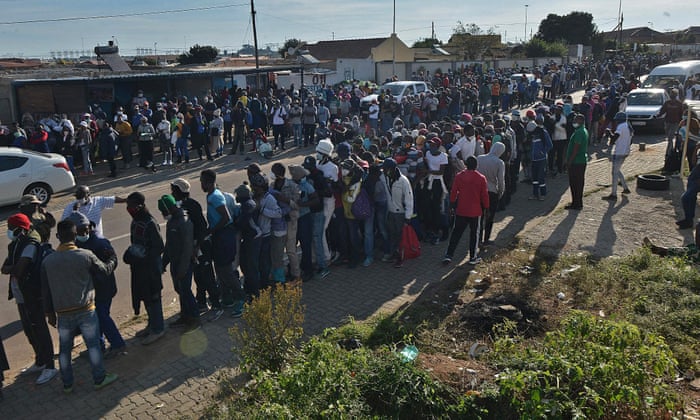Featured Post
Never Waste a Crisis!
Now is a good time for progressives to think about what we should encourage and what we should resist during the current crisis and in the...
09 May 2020
Richard Scarry and COVID-19
06 May 2020
COVID-19 and 'The Wretched of the Earth'
 |
| People line up to receive food handouts in the Olievenhoutbos township of Midrand |
05 May 2020
Science, expertise and ignorance
With COVID-19 we have all of these in bucketloads... what all the drivers and risk factors are, what the odds are of particular risks (they seem to vary widely across countries), a great deal of not knowing what matters and what we need to know, and a large dose of indeterminacy/ambiguity, linked to whether we see COVID-19 as a health problem, a public systems problem, a whole of society problem and so on.
Here's a post on expertise for Arena magazine, that I wrote today.
And here's an extremely interesting article from the New York Times asking why the impacts of COVID-19 have been so different in different places.
-
I've let this blog go quiet the past three months. But it seems appropriate to link to my latest piece on COVID here. https://arena.org...
-
Now is a good time for progressives to think about what we should encourage and what we should resist during the current crisis and in the...